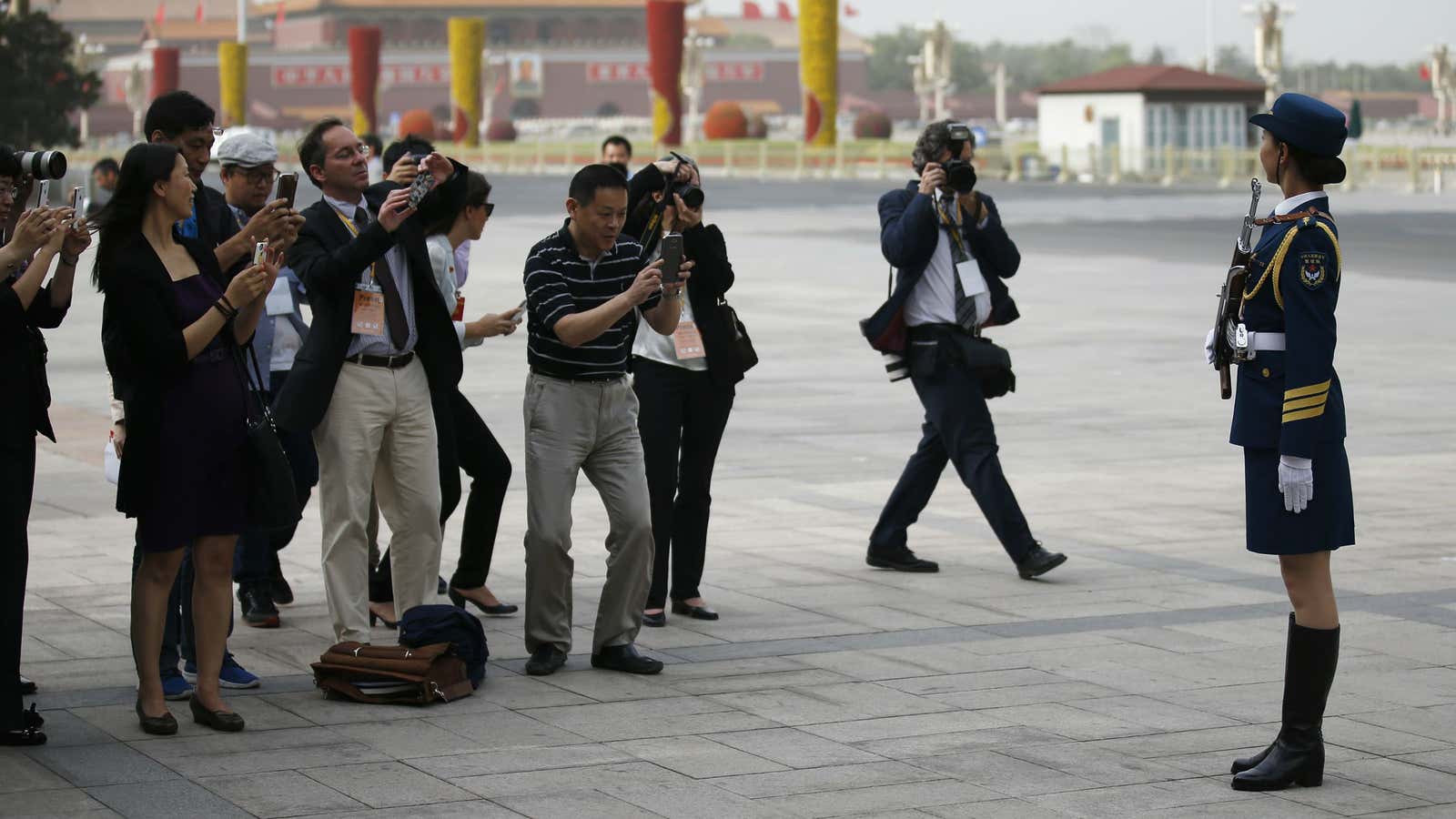Like most governments, China is paranoid about its state secrets being exposed by pesky journalists. And like most governments, it has rules in place that make it difficult for reporters to publish such secrets, or for politicians to leak them. China has decided those rules aren’t strict enough, and is now broadening them so that journalists can be punished just for talking about or collecting secrets.
China’s constitution already says that any publisher found exposing state secrets without first notifying the government is subject to punishment. But the new rules ban “copying, recording, or storage of state secrets,” reports official state news agency Xinhua, citing a decision handed down by the country’s main media regulator. Xinhua has a more detailed summary of the rules in Chinese: here it adds that journalists cannot even have “private association or correspondence that touches on state secrets.”
The hazy boundaries of Beijing’s definition of “state secrets” make these rules even more troubling. A few years ago an American geologist was sentenced to eight years in prison for selling data on the Chinese oil industry, which his lawyers claimed became “secret” only after he obtained them. More recently, Gao Yu—a journalist known for reporting critical of the government—was detained for “leaking state secrets” to a foreign news organization.
Such precedents won’t put reporters at ease.
The new rules look like another phase in China’s recent push to censor journalists even before they publish. Quartz last month reported on another rule change that banned journalists from initiating “critical reporting” without first getting approval. In some ways the state-secret rules are even more onerous, as they allow regulators to punish publishers for collecting material that does not directly criticize the party or government.
More broadly, the rules point to the consolidation of power happening within the Chinese Communist Party under president and party leader Xi Jinping. By shoring up support and eliminating political enemies, Xi has been able to simultaneously promise bold economic reform, crack down on corruption, and move to keep the media on a shorter leash.
Xi no doubt hopes that tightening his grip on the press won’t anger reporters to the point of making them even more critical.
